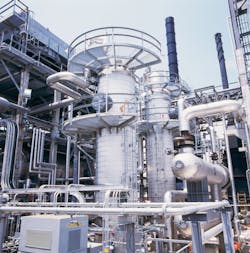Shell plans to shed Alabama, Washington refineries
Royal Dutch Shell PLC subsidiary Equilon Enterprises LLC (dba Shell Oil Products US) is further trimming US refining operations with the proposed sales of its 149,000-b/d Puget Sound refinery near Anacortes, Wash., and subsidiary Shell Chemical LP’s 90,000-b/d Saraland refining and petrochemical site in Mobile, Ala.
The decision comes as part of Shell’s ongoing plans to reshape its refining portfolio globally to leverage the company’s natural strengths and integration opportunities, Shell Oil Products said in a release.
“We are refocusing our global presence in line with that of our customers, trading operations, and chemicals plants. This will result in a more valuable, integrated downstream business,” said Robin Mooldijk, Shell’s executive vice-president of manufacturing.
The proposed sale process for the refineries could take many months and may or may not result in a finalized sales transaction, the operator said, adding that it may elect to discontinue the marketing process for one or both assets at any time.
If the marketing process does not result in a finalized sales transaction, Shell said it plans to continue operating the refineries.
Despite its plan to shed the Saraland site—which has the optionality to run as a stand-alone refinery to produce base oils or chemicals feedstock—Shell said the US Gulf Coast will remain a key manufacturing hub for the company, whose subsidiaries Shell Deer Park Refining LP and Shell Chemical operate the 340,000-b/d integrated refining and petrochemicals Deer Park manufacturing site in Deer Park, Tex.
The company also plans to maintain its marketing presence and continue to honor branded wholesale agreements in both the US West Coast and USGC regions.
As part of its downstream sell-off program, Shell most recently completed the sale of its former 157,000-b/d dual-coking refinery and integrated logistics assets at Martinez, Calif., to PBF Energy Inc. subsidiary PBF Holding Co. LLC for $1.2 billion (OGJ Online, Feb. 3, 2020).
At the time of the Martinez sale, Shell said, by 2025, it expected to have interests and continue investing in a smaller, core set of refineries, a key advantage of which will come from further integration with Shell trading hubs and from producing more chemicals and other products resilient in a lower-carbon future, such as bitumen and base oils.
The completed Martinez sale as well as the proposed Saraland and Puget Sound divestitures follow a series of global downstream divestment initiatives by Shell during the last several years as part of the operator’s plan to concentrate its downstream footprint on a smaller number of assets and markets where it can be most competitive (OGJ Online, Apr. 22, 2019).
In April 2019, Shell also announced it would not be renewing its membership as of 2020 in American Fuel & Petrochemical Manufacturers (AFPM) over misalignment of climate-related policy positions between the company and the industry associations. Following Shell’s departure from AFPM, Total SA and BP PLC announced they, too, decided to leave the association over misalignment of climate-related policies in November 2019 and late February 2020, respectively (OGJ Online, Nov. 11, 2019).
About the Author
Robert Brelsford
Downstream Editor
Robert Brelsford joined Oil & Gas Journal in October 2013 as downstream technology editor after 8 years as a crude oil price and news reporter on spot crude transactions at the US Gulf Coast, West Coast, Canadian, and Latin American markets. He holds a BA (2000) in English from Rice University and an MS (2003) in education and social policy from Northwestern University.

